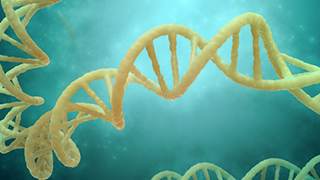Gene editing may be used for harm by rogue clinics, experts warn

'Rogue' clinics may use gene editing to 'enhance' children and for other harmful experiments, leading bioethicists have warned.
The warnings come only a fortnight after UK scientists were granted permission by the Human Fertilisation and Embryology Authority (HFEA), to begin genetic modification on human embryos.
Dr Kathy Niakan of the Francis Crick Institute, where the experiments will begin in the next few months, has claimed that they will help to discover why miscarriages and failed IVFs occur.
Christian Concern has joined many others in opposing the move to approve this technique in the UK, with Chief Executive Andrea Williams stating that the decision has crossed a "dangerous" ethical line.
Now, bioethicists are raising concerns that some clinics may undergo unregulated procedures, and even use gene editing to create 'designer babies'.
Single gene editing
The new technique, known as Crispr-Cas9 (CRISPR), is thought to be able to edit single genes, by making the 'faulty' gene inactive or replacing it with a healthy copy. This would alter the DNA of the embryo.
Experiments would take place on the human embryo within the first seven days of its life, and afterwards it would be destroyed.
The practice has not only been criticised for destroying human life, but there are also concerns about the technique’s unknown consequences.
'Misleading' claims
Additionally, it is believed that its claimed benefits of improving fertility are "misleading".
Writing on the Christian Medical Fellowship Blog, Dr Peter Saunders explained:
"The fact is that we already have quite a good understanding of what causes IVF failure and miscarriage and it has very little to do with anything that can fixed by Crispr-Cas9.
"Only abnormalities in single genes can be readily fixed with gene editing of the sort that the Crick Institute is proposing. Gene editing tools like Crispr-Cas9 do not fix chromosomal abnormalities".
Designer babies and ‘deadly’ diseases
The Francis Crick Institute’s Professor Lovell Badge expressed concerns last week about scientists undergoing the procedure without proper regulation.
"I’m very, very concerned about this whole notion of there being rogue clinics doing these things," he said.
"These clinics have popped up in many countries, including the US, which are offering treatments which have no real basis in science or fact and may be dangerous in some cases."
Leading IVF specialist Lord Robert Winston, however, has said that regulation will not offer adequate protection from harmful consequences.
"Whatever is said, regulation cannot prevent this from happening either in the UK eventually or much more likely elsewhere" he said.
He went on to say that scientists may use gene editing for the purpose of creating 'designer babies':
"With the power of the market and the open information published in journals, I am sure that humans will want to try to ‘enhance' their children and will be prepared to pay large sums to do so."
Others speculate that the approval of CRISPR could lead to other adverse consequences.
Robert Klitzman, a bioethicist at Columbia university, USA, explained that being given the power to alter diseases could prove to be extremely dangerous.
"The infectious agent responsible for bubonic plague, if altered through Crispr," he said, "could potentially be used as a WMD. Currently, we have effective treatment against it. But if it were altered, it could potentially become resistant to these treatments and thus be deadly."
Practice could become ‘unstoppable’
Dr Trevor Stammers, Programme Director in Bioethics and Medical Law at St Mary's University, has also spoken about the many concerns surrounding gene editing and its approval in the UK.
Speaking on BBC Radio 4 on 3 February in response to earlier comments by Professor Lovell Badge, he outlined the problems with the destruction of human embryos and the dangers of introducing even restricted experimentation.
By gradually removing restrictions surrounding the technique, he explained, the practice will be "unstoppable", as scientists push to break further scientific boundaries.
Related Links:
Claims that GM embryos will help boost IVF success rates are pure spin (CMF)
UK scientists to begin genetic modification of human embryos
'Three-parent babies' technique 'should not be used on girls'
Related Coverage:
'Rogue scientists' could exploit gene editing technology, experts warn (Guardian)
Eugenics is inevitable because parents will always want to 'enhance' their children, experts warn (Telegraph)
